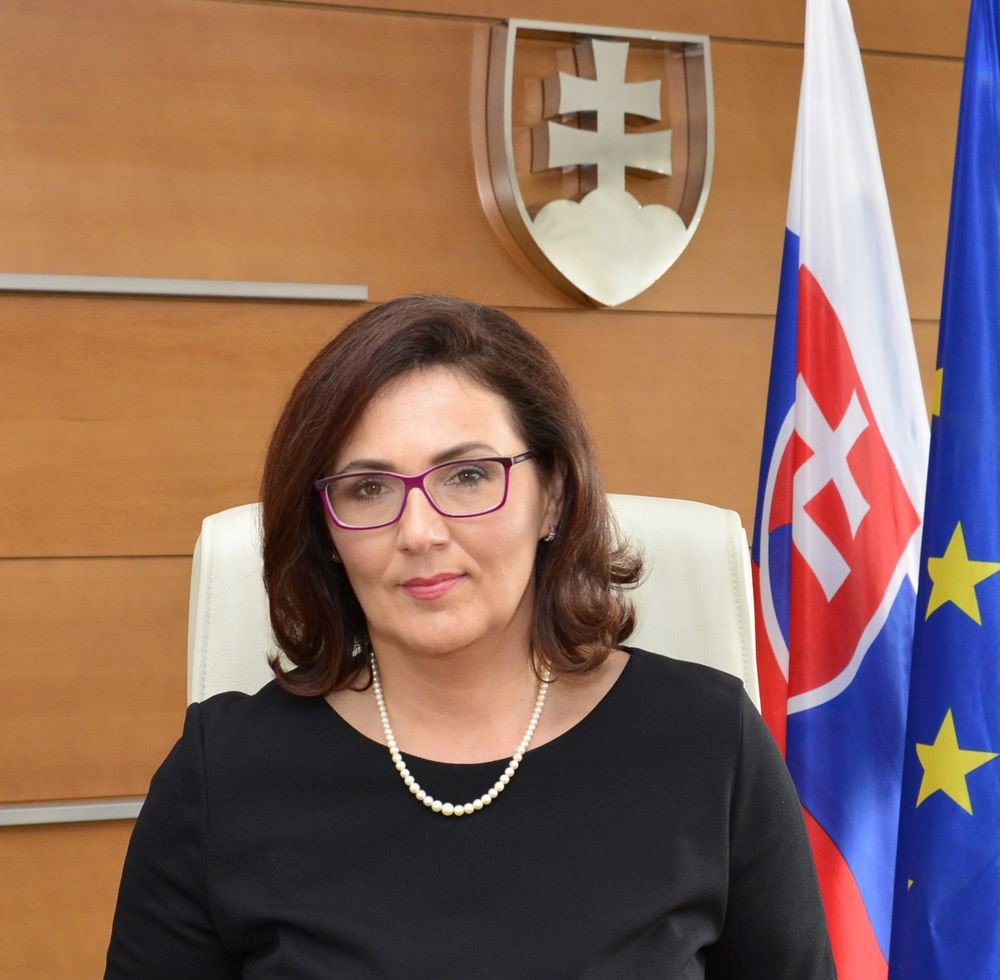Who is going to break the silence over segregation of Romani children in Slovakia: the Ministry of Education or the European Court of Justice?
25 October 2017
By Marek Balaz
The recently appointed Slovak Minister of Education, Martina Lubyova, has to resolve the biggest dilemma facing her ministry in years. Either she will be the minister who openly admits that the educational system in Slovakia discriminates against tens of thousands of Romani students, or she will leave this task to the European Court of Justice.

Martina Lubyova, Minister of Education, Science, Research and Sport of the Slovak Republic
It is time for the minister to be courageous enough to open a space for a discussion on how to deal with the fact that Roma children are systematically deprived of their right to education by being segregated in both special and mainstream schools. None of the previous ministers of education have managed to open this discussion to find solutions to the injustice that blights the everyday reality of many Romani children in Slovakia, and deprives them of life opportunities.
Within the Ministry of Education, there seems to be no room for discussion as to whether or not the Slovak system is unjust towards Roma. On this point, the short and blunt answer is a resounding yes. Research conducted by the European Roma Rights Center and Amnesty International last year found that “piecemeal reforms and periodic declarations of intent by successive governments cannot obscure the fact that the discrimination and segregation of Roma in primary education remains widespread and that the Slovak authorities are fundamentally failing to address them.”
In 2015, following continued international and national criticism of the Slovak authorities’ inaction, the European Commission initiated infringement proceedings against Slovakia for breaching the prohibition of discrimination in education set out in the EU Race Equality Directive. In its July 2016 review of Slovakia, the United Nations Committee on the Rights of the Child expressed concern that Romani children continue to be subjected to de facto segregation in the school system with over 50% being taught in Roma-only classes or attending classes in separate school facilities often providing inferior education. The Committee also noted that a disproportionately high number of Romani children continued to be placed in schools for children with “mild disabilities.”1 Despite all the evidence, the Ministry of Education has never acknowledged the systematic discrimination and instead has opted to remain in complete denial. In 2014, Slovakia refused the recommendations regarding the discrimination of Romani students under the UN Universal Periodical Evaluation based on a claim that legislative equal treatment is already provided. In other words, all is fine in Slovakia and we do not acknowledge the claims made under the Universal Periodical Evaluation.
Minister Lubyova is becoming ever more familiar with the situation of Roma students and should act promptly. Last week the Ombudsperson-Maria Patakyova-clearly articulated her concerns that if Slovakia does not introduce reforms targeting special education diagnosis and spatial segregation, the country will face trial before the European Court of Justice. The Ombudsperson office also provided the minister with recommendations that had previously been submitted to, but never heeded by the state authorities
There has been no shortage of recommendations by national and international organizations, UN bodies and the European Union. They have been remarkably consistent on the question of what steps need to be taken to redress the situation. What is needed is swift and determined implementation.
A full two years into the European Commission’s investigation following the launch of infringement proceedings over school segregation, and despite all the evidence on the ground, Slovakia has yet to acknowledge the discrimination faced by Romani students. If the denial from the Ministry of Education will continue, the European Commission will ask the European Court of Justice for an informed opinion regarding the segregated education of Roma. Based on the amount of evidence documenting the segregation of Romani students, the European Court of Justice might easily find Slovakia in deliberate breach of European Union’s antidiscrimination laws, resulting in heavy fines to be paid by Slovakia, and an instruction to comply with EU legislation to introduce policies and practices that would end segregation and discrimination against Romani students.
Minister Lubyova could avert all of this. But first she needs to admit publicly what has been, for many years, obvious and in plain sight for everybody else aside from the Ministry of Education. Slovakia violates the rights of Romani students; and there can be no sound political reason for continued blank denial of the situation in the face of so much incontrovertible evidence of systemic discrimination. There is no more time left to remain silent about segregating Romani students; either the Ministry of Education or the European Court of Justice will break this silence. The only question that remains is who will be first to speak out and stand up for the rights of Roma to access quality integrated education.
- United Nations Committee on the Rights of the Child, Concluding Observations on Slovakia (CRC/C/SVK/CO/3-5) 2016.




